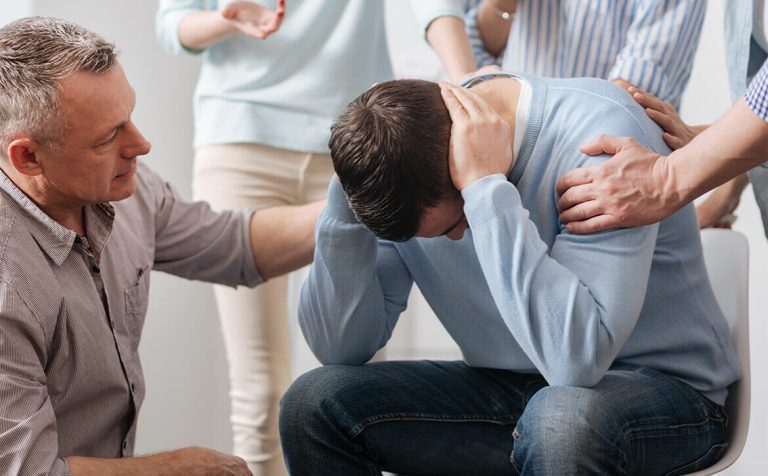Major depressive disorder (MDD) is a prevalent mental health condition impacting millions of Americans. If you’ve battled depression before, the fear of a relapse is understandable. The good news is, by recognizing the early signs of depression relapse, you can take steps to prevent a more severe episode and reclaim control of your well-being.
Understanding Depression Relapse: When the Darkness Returns
- Relapse vs. Recurrence: What’s the Difference?
It’s crucial to distinguish between a relapse and a recurrence of depression. A relapse refers to symptoms reappearing during the recovery period following an initial episode. This typically happens within the first two months after stopping treatment. In contrast, a recurrence signifies the return of depression months or even years after a period of remission. Recurrences are most common within the first six months after recovery. - Risk Factors for Depression Relapse: Triggers to Watch Out For Several factors can increase your vulnerability to a depression relapse. Here are some key ones:
- Incomplete Treatment: Not completing the prescribed medication regimen or therapy sessions can leave you more susceptible to relapse.
- Stressful Life Events: Experiencing significant life stressors, such as job loss, relationship issues, or bereavement, can trigger a relapse.
- Underlying Medical Conditions: Certain medical conditions like chronic pain, diabetes, or thyroid problems can elevate the risk of depression relapse.
- Substance Abuse: Using drugs or alcohol as coping mechanisms can worsen depression symptoms and increase relapse risk.
- Seasonal Changes: Individuals with Seasonal Affective Disorder (SAD) may experience depressive episodes specifically during winter months.
12 Early Signs of Depression Relapse: Recognizing the Subtle Shifts
Depression often creeps back in gradually. By being aware of the subtle changes in your thoughts, emotions, and behaviors, you can catch a relapse early and take action. Here are 12 key warning signs to watch out for:
- Mood Changes: Feeling down, sad, irritable, or anxious most of the day.
- Loss of Interest: Activities you once enjoyed, like hobbies, social outings, or spending time with loved ones, now seem unappealing or overwhelming.
- Social Withdrawal: You find yourself isolating yourself, avoiding social interactions, and neglecting relationships.
- Fatigue and Loss of Energy: Even simple tasks feel draining, and you experience constant tiredness despite getting enough sleep.
- Agitation and Restlessness: You feel on edge, unable to relax, and have difficulty staying still.
- Sleep Disturbances: Changes in sleep patterns may occur, including insomnia (difficulty falling asleep or staying asleep), or sleeping excessively.
- Appetite Changes: You may experience significant weight loss due to decreased appetite or weight gain due to emotional eating.
- Increased Irritability: You find yourself getting frustrated or annoyed more easily than usual, with a lower tolerance for everyday hassles.
- Feelings of Worthlessness and Guilt: You engage in negative self-talk, dwelling on past mistakes and feeling like a burden to others.
- Concentration and Memory Problems: Difficulty focusing, remembering things, or making decisions becomes increasingly challenging.
- Physical Aches and Pains: Unexplained headaches, stomachaches, muscle tension, or other bodily pains may manifest.
- Suicidal Thoughts or Ideation: If you experience thoughts of harming yourself, seek immediate professional help. Don’t hesitate to call a crisis hotline or emergency services.
Taking Action: Strategies to Prevent Depression Relapse
The power lies in proactive measures. Here are some effective strategies to prevent a depression relapse:
- Complete Your Treatment Plan: Sticking with your doctor’s recommended treatment plan, including medication and therapy sessions, for at least six months after feeling better reduces the risk of relapse significantly.
- Embrace Mindfulness Techniques: Mindfulness-based therapies like meditation can equip you with tools to manage negative thought patterns, cultivate self-awareness, and identify early warning signs.
- Educate Your Loved Ones: Inform your close friends and family members about the potential warning signs of depression relapse. Having a support system that can recognize these signs and encourage you to seek help is crucial.
- Develop a Relapse Prevention Plan: Work with your doctor or therapist to create a personalized relapse prevention plan. This plan should outline early warning signs to watch for and specific actions to take if you experience them. This could involve contacting your doctor, increasing therapy sessions, or engaging in self-care activities.




